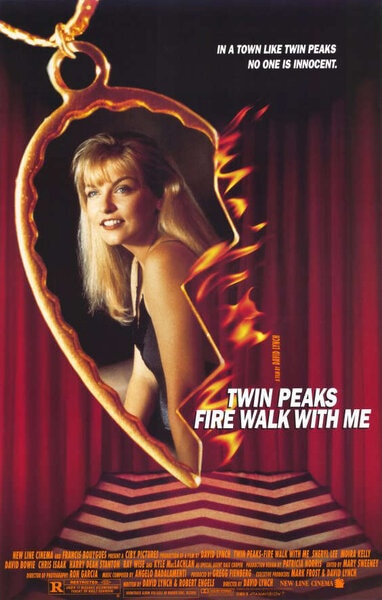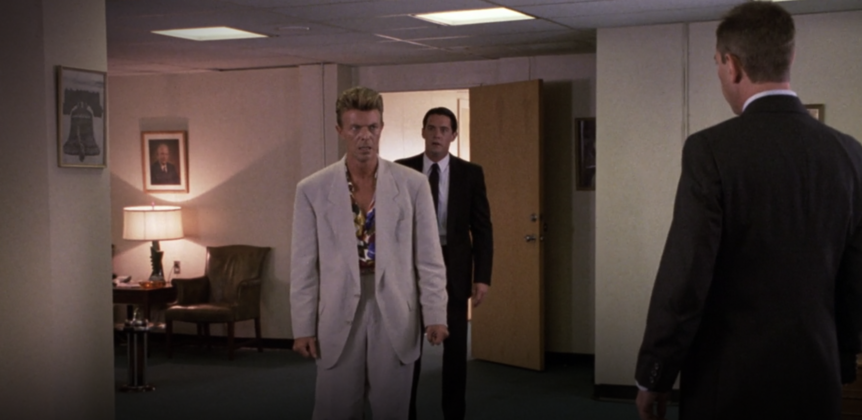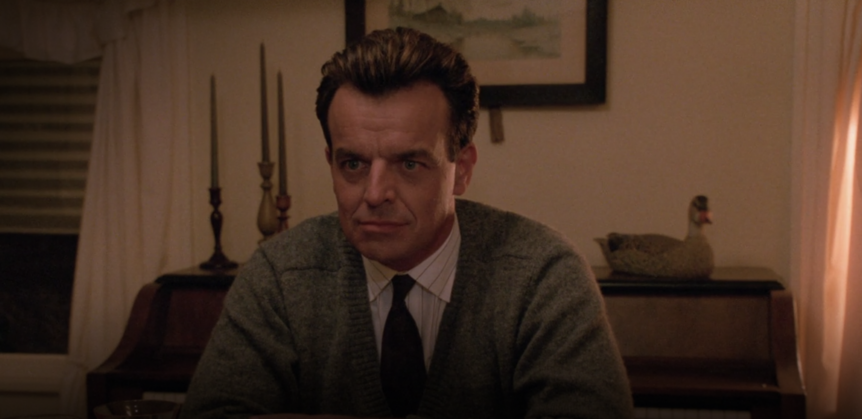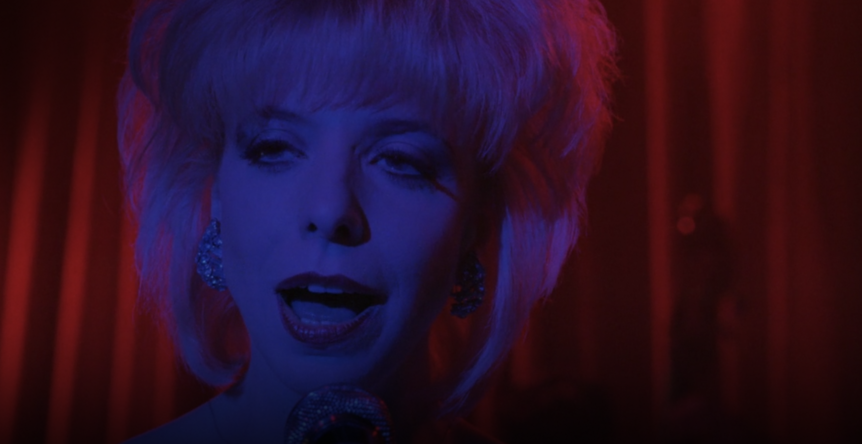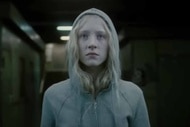Create a free profile to get unlimited access to exclusive videos, sweepstakes, and more!
The Week in Genre History: 'Twin Peaks: Fire Walk With Me' burned David Lynch then became a classic
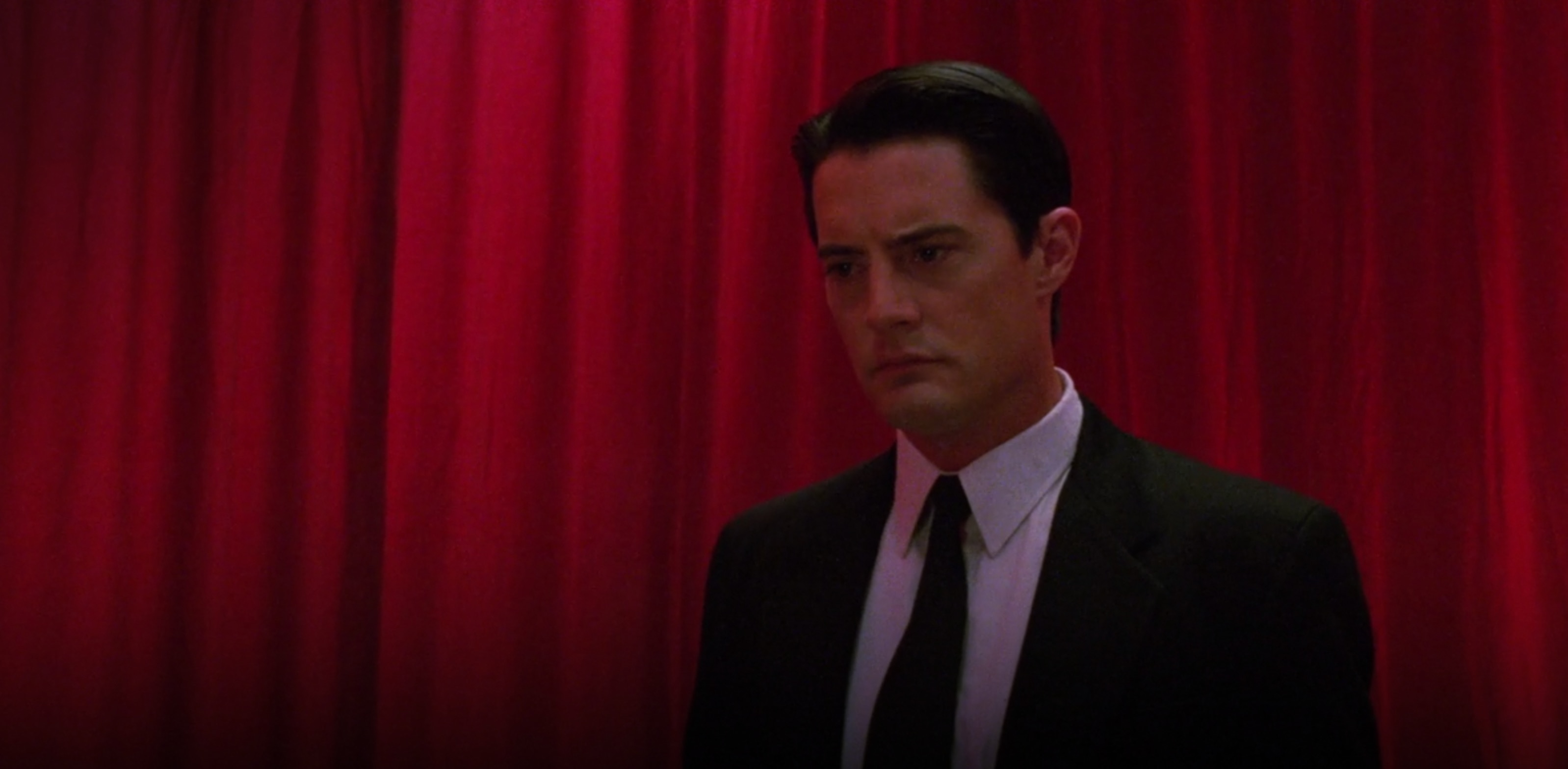
Welcome to This Week in Genre History, where Tim Grierson and Will Leitch, the hosts of the Grierson & Leitch podcast, take turns looking back at the world’s greatest, craziest, most infamous genre movies on the week that they were first released.
In 1990, David Lynch was on a roll. That spring, his show Twin Peaks was the most original thing on television, well on its way to being a cultural touchstone for decades to come. Soon after, his film Wild at Heart won the prestigious Palme d’Or at the Cannes Film Festival, and in October he was on the cover of Time, hailed as a genius. The surrealist auteur couldn’t have been hotter, but in the back of his mind, he knew it wouldn’t last.
“They warned me if you’re on the cover of Time, you’ve got two years’ bad luck coming,” he said about a decade later. “And a black cloud did come over me, and when the black cloud comes over, there’s nothing you can do about it. Nothing. And you look out and you wonder, ‘How come these things are happening and people are saying these things?’ It’s just the way it is. It’s just part of the deal. And then you wonder, ‘How long will the cloud be there?’”
Twin Peaks: Fire Walk With Me happened in the midst of that cloud. Opening in U.S. theaters on Aug. 28, 1992, it was a commercial failure and critically derided. Even worse, the film seemed to suggest that Lynch had lost his touch — and that his desire to extend the life of his ABC series through a feature-length motion picture was the height of ego and folly. The impression was that he’d turned the once-revolutionary Twin Peaks into a parody of itself.
But dark clouds eventually dissipate, and Lynch’s stature has only grown with time — and, along the way, so has that of Fire Walk With Me. You would never have believed such a thing was possible 29 years ago. A lot of people really hated that movie — at least, the ones who even bothered seeing it.
Long before prequels were fashionable, Lynch conceived Fire Walk With Me as one — that is, after you got through a prolonged prologue involving two FBI agents (played by Chris Isaak and Kiefer Sutherland) trying to find the killer of a young woman named Teresa. (What did any of that have to do with Twin Peaks? Viewers were baffled.) The film then cuts to the titular Washington town, chronicling the final week in the life of Laura Palmer (Sheryl Lee), the local beauty whose murder kickstarted the show. Lynch watches Laura descend into darkness, stumbling through a fog of sex and drugs. We knew that her story would end unhappily, but Fire Walk With Me explores every sad, sordid detail.
At the time, audiences didn’t want to take that return trip with Lynch. In recent years, though, the curious have found much to savor in this bizarre, engrossing psychological horror movie. Were people right back then about Fire Walk With Me? Or are they right now?
Why was it a big deal at the time? The Twin Peaks series ended its run on June 10, 1991. But, for many fans, the show had been over for a while before then. After a terrific first season, which garnered the program 14 Emmy nominations, the second season proved less consistently brilliant — plus, Lynch wasn’t as involved as he’d been for Season 1. Lynch returned for the finale, but rather than offering closure, he only left viewers with more mysteries. Philip Segal, who headed up programming for ABC, recalled in the Twin Peaks oral history Reflections, “I just laughed at [the finale] because it laughed at us. It made a mockery of us. It made a mockery of the television audience when you think about it. It was so ridiculous. There was a part of me that thought it was brilliant and refreshing because it broke the rules and was so avant-garde, and there was a part of me and part of the network that felt betrayed and felt this wonderful opportunity to keep something brilliant alive had just been destroyed by its creators."
Soon, Lynch was moving on to make Fire Walk With Me, his first feature since Wild at Heart. “I don’t have any memory of knowing that there was going to be a film when Season 2 ended,” Lee said in 2017. “At some point along the way, David started talking to me about it, and we started having some creative meetings, very casually.” And as opposed to the series, Lee would actually get to be the lead character — not just someone who had died that others talked about.
“Sheryl Lee … was [originally] hired to be a dead girl laying on a beach,” Lynch said when Fire Walk With Me made its world premiere at Cannes. “It turns out, at least in my opinion, she’s an unbelievable actress, and there are things that she’s done in this movie that are truly incredible. I haven’t seen too many people get into a role and give it as much.”
The filmmaker brought back some of the show’s other actors, including Kyle MacLachlan (briefly) as Agent Cooper and Ray Wise, who plays Laura’s father (and killer) Leland. And then there were new additions, including David Bowie playing mysterious FBI agent Phillip Jeffries in the prologue. Robert Engels, one of the main series writers on Twin Peaks, worked on the Fire Walk With Me script with Lynch, recalling that Bowie’s casting started off as a joke.
“When we were writing Fire Walk With Me at David’s house,” Engels said, “his assistant at the time would be in the other room, and she would come in to give David a phone message or something. She would hear what we were talking about, and she would always jokingly say, ‘As played by David Bowie.’ We’d always laugh. When we got done with the script, David said, ‘I think we should get David Bowie.’ … Of course, David being David, he can just call him up. It was pretty funny.”
Long before The Phantom Menace and the wave of prequels that followed, Lynch had the clever notion of telling the story of what happened before the story we all knew. And while Twin Peaks had lost some of its cultural cachet by that point, it was potentially intriguing to see a film that fleshed out Laura’s backstory — to make her real and not just a murdered teen.
But pretty soon, there were signs that audiences might not be that interested in an expanded Twin Peaks universe. When Fire Walk With Me premiered at Cannes — the festival, two years earlier, where Lynch had been celebrated for Wild at Heart — it was supposedly booed, which, it needs to be pointed out, is not necessarily the kiss of death. (The Tree of Life was booed. Wild at Heart was booed. It’s pretty fashionable for contrarian critics to boo at Cannes press screenings.) But it wasn’t just the press that hated Fire Walk With Me: Quentin Tarantino, who was at the festival for Reservoir Dogs, later complained, “David Lynch had disappeared so far up his own ass that I have no desire to see another David Lynch movie until I hear something different. And you know, I loved him. I loved him.”
The reviews that greeted the film’s American release were no less poisonous. Famously, The New York Times’ Vincent Canby declared, “It’s not the worst movie ever made; it just seems to be. Its 134 minutes induce a state of simulated brain death, an effect as easily attained in half the time by staring at the blinking lights on a Christmas tree.”
After the initial success of Twin Peaks and the accolades for Wild at Heart (not to mention 1986’s Blue Velvet), you could feel people turning on Lynch. They had their knives out for this new movie.
What was the impact? Late August is not when studios put out their blockbusters. In normal, pre-pandemic times, it’s a bit of wasteland for stinkers. (The thinking is that students are going back to school and families are doing one last summer vacation before the fall, so nobody’s bothering to go to the theater.) Fire Walk With Me’s release certainly felt like a dump, and the movie only grossed about $4 million in the U.S. (Funny enough, though, it was a big hit in Japan, where it came out in May of that year and was still going strong months later, fueled by the local audiences’ love of the show.)
Critics blasted Fire Walk With Me for its confusing digressions and graphic violence. It was derided as sleazy and pointless. “There have always been two sides to Lynch: the inscrutable, demonic prankster and the rhapsodic dreamer,” Entertainment Weekly’s Owen Gleiberman wrote in his review. “In Fire Walk With Me, he’s at least trying to recover his poetic sincerity. If only his dreams weren’t starting to look like reruns.” Especially considering that Lynch’s post-Twin Peaks series, On the Air, fizzled earlier in 1992, Lynch’s brand of quirky surrealism suddenly felt passé and self-indulgent.
Much of the rest of the ‘90s were a struggle creatively for Lynch. His follow-up film, Lost Highway, had its striking moments but didn’t feel as inspired as his most visionary work. Afterward, he made The Straight Story, a complete change-of-pace in that it was a homespun, delicately sincere portrait of an aging man (Richard Farnsworth) who takes his trusty tractor on a road trip to reconnect with his estranged brother. It was a beautiful film wholly lacking that trademark Lynchian strangeness — it wasn’t until 2000’s epochal Mulholland Dr. that he fully recaptured the dreamlike ambiguity of his earlier landmarks.
And then a funny thing happened: The public started changing its mind about Fire Walk With Me. It’s hard to nail it down to one specific moment, but over time you could sense a building fondness for the movie. (For instance, in 2012’s once-a-decade Sight & Sound poll of the greatest films ever made, celebrated indie auteur Gregg Araki provocatively put Fire Walk With Me on his Top 10.) But the reappraisals really came out when Lynch announced that he’d be making Twin Peaks: The Return, his ambitious and acclaimed 2017 Showtime series — and then hinted that Fire Walk With Me would be very important to understanding what would happen in these new episodes. Around the same time, the movie got the hallowed Criterion Collection treatment, joining Eraserhead and Mulholland Dr. in the collection. Suddenly, Lynch’s debacle was being embraced as a misunderstood masterpiece.
But the newfound appreciation of Fire Walk With Me may also have to do with its stark treatment of Laura Palmer’s plight. In 2017, Lee, who first played Laura more than 25 years earlier, told Entertainment Weekly, “I see the film and Laura’s journey in such a different way. And so it’s hard for me to unsee what I see now. What I see now is all of the signs, and no one reaching out to help her. Every single day that happens to the girls in our country, in real life.” And indeed, the sad fact is that, in light of #MeToo, the sexual abuse Laura faced as a teenager now feels painfully timely — especially in an age of true-crime series that often chronicle the killing and abusing of women and girls. Twin Peaks alluded to this trauma, but Fire Walk With Me made it real through Lee’s heartbreakingly visceral performance. She made you feel the anguish of a character dealing with demons.
Lynch never stopped defending Fire Walk With Me, which was far different than his opinion on his other cinematic bomb, 1984’s Dune. “I love [Fire Walk With Me],” he said in 2018. “I love the film. With Dune, I sold out on that early on, because I didn’t have final cut, and it was a commercial failure, so I died two times with that. With Fire Walk With Me, it didn’t go over well at the time, but I loved it so I only died once, for the commercial failure and the reviews and things. But, over time, it’s changed. So now, people have revisited that film, and they feel differently about it. When a thing comes out, the feeling in the world — you could call it the collective consciousness — is a certain way, and so it dictates how the thing’s going to go. Then the collective consciousness changes and people come around.”
The cloud isn’t always there.
Has it held up? Fire Walk With Me was never deserving of the brickbats that descended upon it back in 1992. It may not be among Lynch’s finest films, but it does feel like one of his most emotional and even personal. “I always loved Laura Palmer,” he said in 2014, “and in the series she’s dead, so I loved the idea of seeing the last week of her life.”
There’s an argument to be made that Fire Walk With Me exploits real-life violence against women for an often hallucinatory and disturbing horror film. (And Lynch has certainly had a habit of making stories in which women are subjected to sexually motivated violence.) At that Cannes press conference, he was asked about the level of violence in his movies. “I think that it is very dangerous … that we are attacking films for violence and not doing a whole lot in the world for violence. Film is a safe place to have experiences. Violence exists; it has a major part in a lot of fantastic stories. If [Fire Walk With Me] was championing violence it would be one thing, but I don’t think it is.”
Laura Palmer’s ordeal in Fire Walk With Me adds more context to the ABC series, but it does something else as well. Lee’s intense performance makes the character painfully real — it reminds us that, before we saw her dead in Twin Peaks, she was alive. You know the outcome before you start the movie, but that doesn’t make it any less gripping or tragic. A few years ago, Lee talked about playing Laura, and she admitted that it’s hard for her to distinguish between the series and the film. “When I experience the character of Laura, it’s as one long story,” she said. “It’s as one life.” With Fire Walk With Me, she and Lynch strove to do justice to that life before it was horribly snuffed out.
Tim Grierson is the co-host of The Grierson & Leitch Podcast, where he and Will Leitch review films old and new. Follow them on Twitter or visit their site. His new book, This Is How You Make a Movie, is out now.
